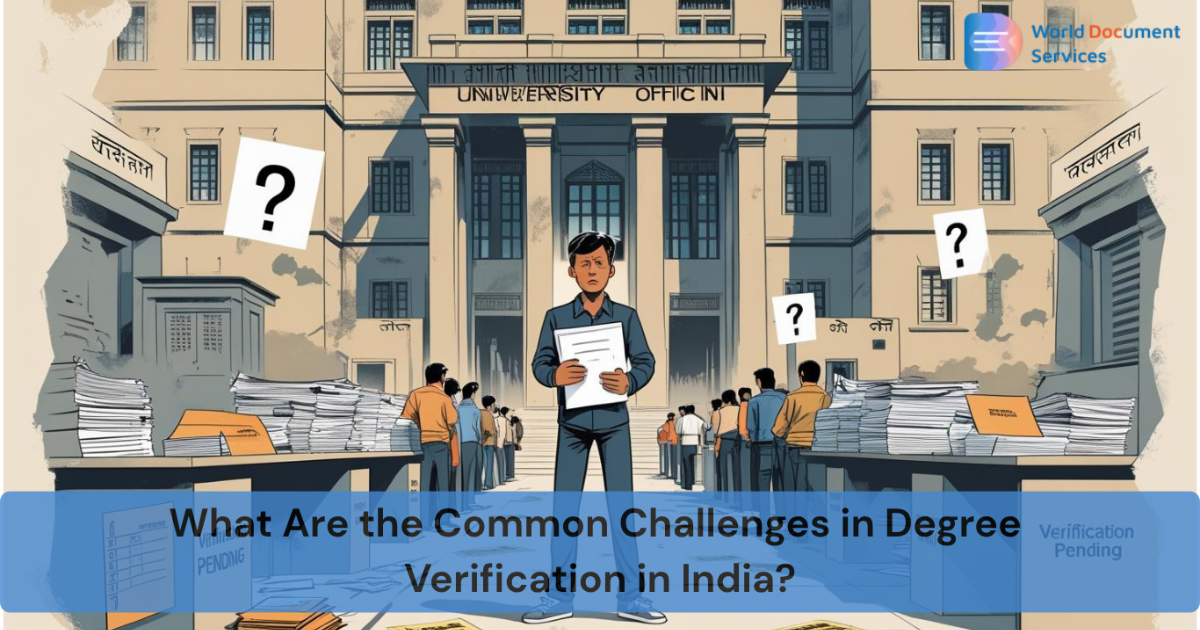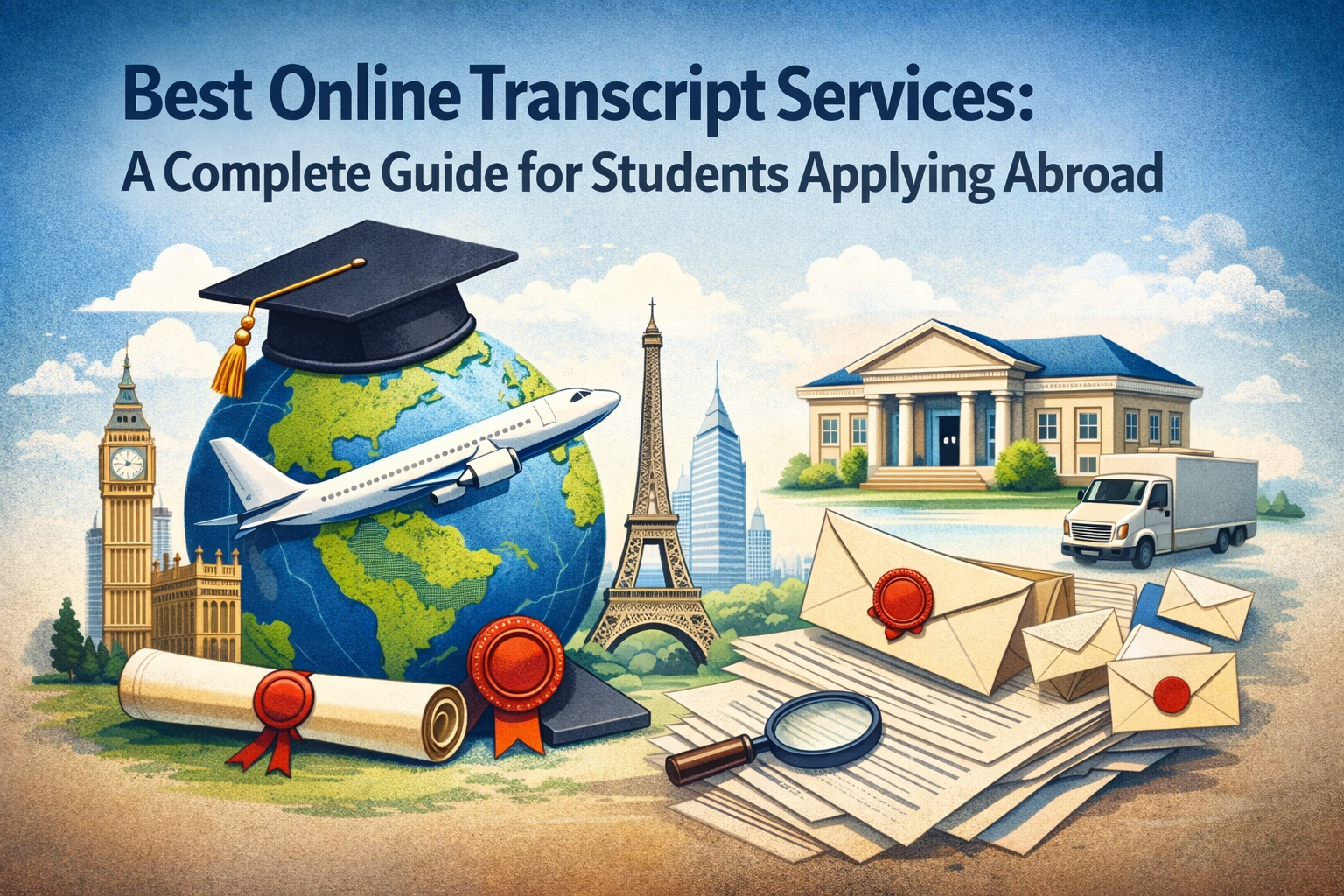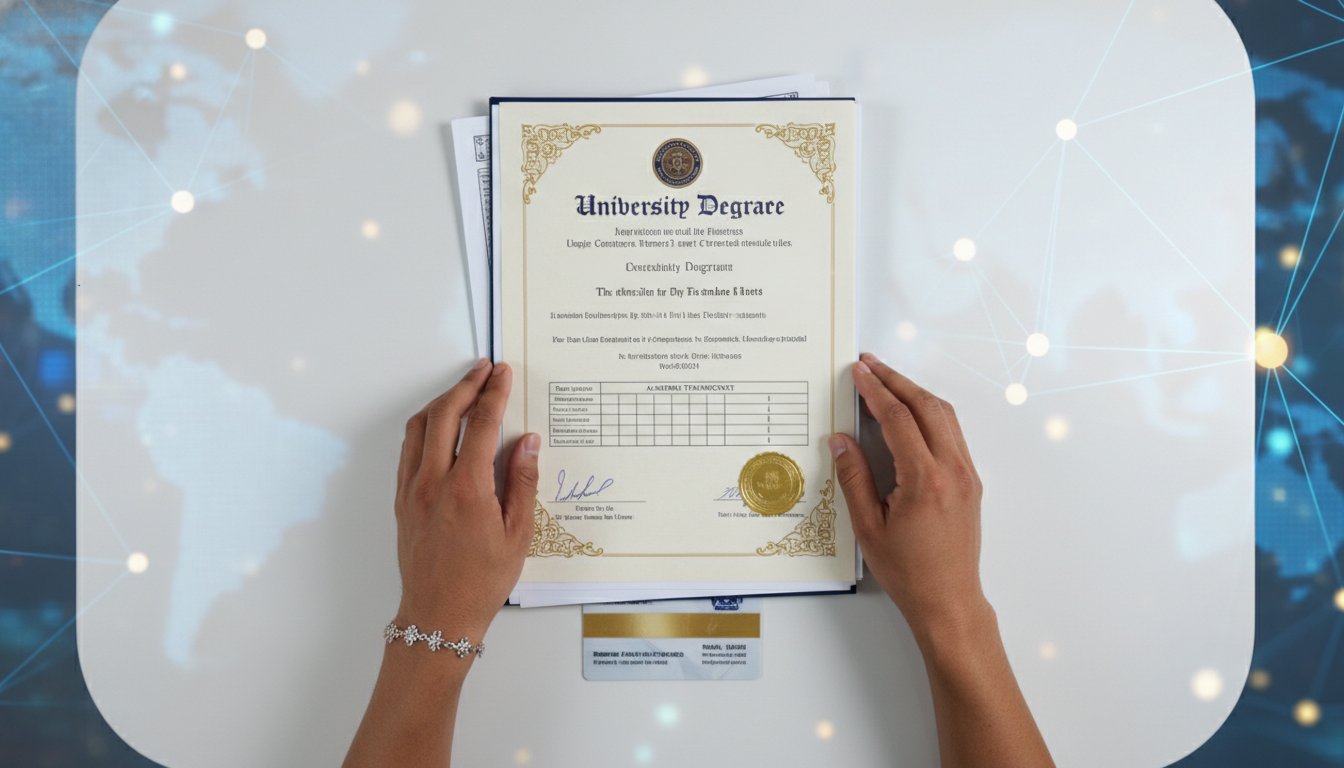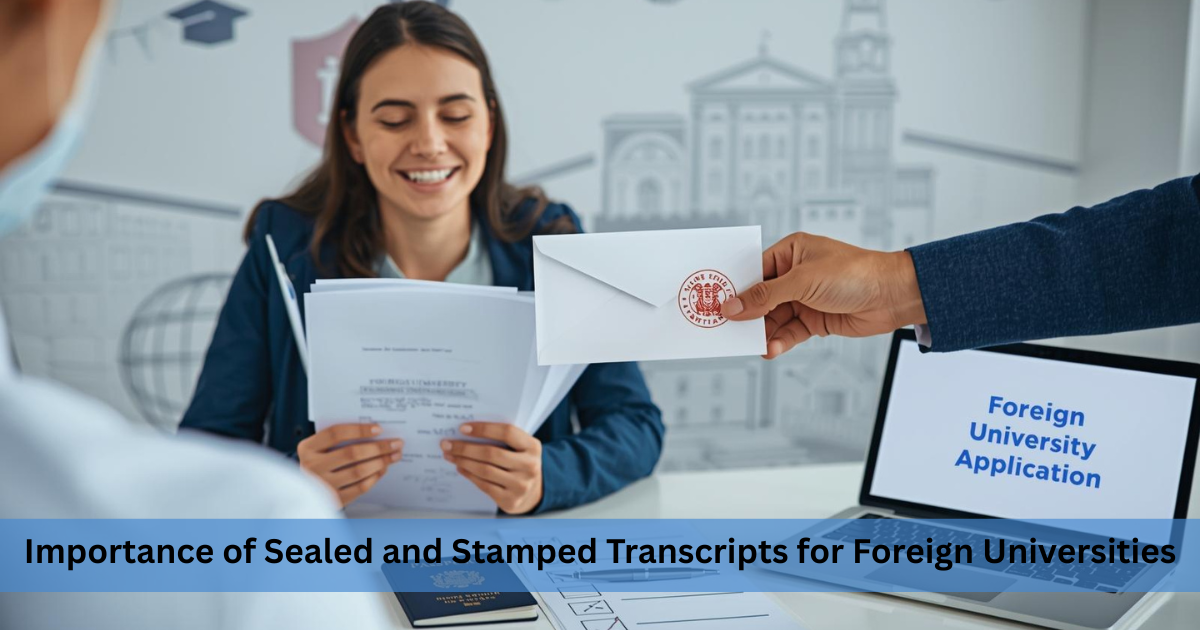
Degree verification is an important process in matters of migration, whether for employment or educational purposes. This is a lengthy process that involves multiple steps, starting from contacting the university to getting the entire process sorted, concluding it by getting your degree verified. However, this process is lengthy, has its own challenges, and creates many issues such as inaccuracies, errors, and delays, which often are a trouble to the applicant.
Need help with your Degree Verification? Contact Us Now!
1. Lack of a Centralized Degree Verification System
One of the biggest challenges in India is the absence of a centralized record system for academic credentials. With thousands of universities and colleges maintaining separate records, accessing verification data becomes cumbersome. Unlike some developed nations with unified academic databases, India’s fragmented system causes delays and inefficiencies. Establishing a centralized database would streamline the verification process, making it more efficient and accessible.
2. Manual and Paper-Based Processes
Many universities in India are still functioning on traditional paper-based record-keeping of documents or maintaining the records, which is now pretty outdated as well as less reliable. Keeping an outdated working pattern slows down the entire verification process, making it less reliable and error-free. Having a paper-based record increases the chances of misplacement and errors in the records.
3. Inconsistent Verification Procedures
The degree verification process varies and differs entirely from university to university. Some institutes have a traditional way of bookkeeping, while others have a modern one. Some universities do not have a predefined process for a degree; some have methods that one can follow and obtain. This inconsistency leads to delay, and only proper planning can help you avoid this delay.
4. Delays in Response from Universities
A common issue in academic credential verification is the prolonged response time from universities. Due to multiple drawbacks and inefficiencies, understaffed departments, and administrative bottlenecks, it can take weeks or even months to process verification requests. These delays can negatively impact job opportunities, admission timelines, and visa applications.
5. Forgery and Fraudulent Degrees
Fake degree certificates and fraudulent academic claims are widespread in India. Many individuals attempt to avoid verification by presenting fraudulent documents. This has made it essential for organizations to implement a strict degree verification process. Figuring out the genuine credentials from fraudulent ones still remains a challenge, especially when universities lack a transparent and uniform verification system.
6. Limited Digital Infrastructure
Some universities, along with time, have developed and started to maintain the digital verification method, while others are still enticed by the traditional paperback method of verification. In the absence of digital methods and uniform methods, many individuals are forced to rely upon postal communication, which is also inefficient and makes the entire process a hassle.
7. High Verification Costs
The cost of verification again is similarly a barrier for individuals and organizations, as these universities have varied and scattered fee systems. Some institutes charge the fees for verification along with the application of transcripts, while others consider it an individual cost. The verified degree to be sent to a domestic address or to an international employer is also a point where the cost will differ.
8. Complexity in Verifying Foreign Degrees
For Indian students who have studied abroad, verifying foreign degrees can be even more complicated.
Validation from international institutes for the student who has followed the Indian educational system. Lacking a uniform system makes the entire process lengthy and creates a long waiting list and waiting periods.
9. Limited Awareness and Guidance
Many students and professionals planning to move abroad and are planning to pursue their career ahead are unaware of the fact that there’s a step, such as degree verification. A lack of such information makes it difficult for one to understand the correct degree verification process and struggle to find the right one as well. Unclear guidelines from the university make it difficult for one to obtain the documents verified on time, as well as make the process complicated.
10. Data Privacy and Security Concerns
With increasing digitization, data security is a major concern in academic credential verification. Universities and verification agencies must ensure that personal and educational data are protected from cyber threats and unauthorized access. The risk of data breaches or misuse of sensitive academic records discourages institutions from fully adopting digital verification methods.
Solutions to Improve the Degree Verification Process in India
While challenges persist, several measures can enhance and streamline the degree verification process:
- Centralized Database: A common database for academic records would simplify verification and reduce inconsistencies.
- Digital verification methods: Universities must start to use blockchain-based verification systems to enhance efficiency and reduce fraud.
- Verification Procedures: Establishing a uniform verification process across all universities will create transparency and accessibility.
- Automation and AI Integration: Leveraging AI-driven verification tools can help detect fake degrees and speed up the record retrieval process.
- Awareness Campaigns: Educating students and employers on the correct verification procedures can reduce errors and miscommunication.
How World Document Services Can Help
For individuals and organizations looking for a streamlined verification process, professional degree verification services can be highly beneficial. We at World Document Services help you in obtaining and verifying academic credentials efficiently, minimizing delays and ensuring authenticity with reliability. With expertise in handling verification requests, we help navigate the complex procedures and provide reliable solutions for academic record verification.
Download the World Document Services App.
You may enjoy a hassle-free experience by downloading our mobile app from either the App Store or the Play Store. It works with both iOS and Android devices.
Conclusion
Degree verification in India is a complex process with multiple challenges, including inconsistent procedures, delays, high costs, and fraudulent degrees. While steps are being taken to improve the system, more effort is required to standardize and digitalize the verification process. By adopting centralized, secure, and efficient verification methods, India can enhance the credibility of its education system and facilitate smoother verification for individuals and organizations alike.
FAQ:
Q: Why is degree verification important?
A: It helps the employees and educational institutions to ensure that the documents submitted by the individual are authentic and are shared by the university itself.
Q: How long does the degree verification process take in India?
A: It varies depending on the university. If the documents submitted are correct, it can take weeks or months to years if there are any errors.
Q: How can I verify my degree from an Indian university?
A: Both online and offline models are available. But if you are present in the same city as your university, it is suggested that you visit and attempt to get verified.
Q: What are the costs associated with degree verification?
A: Cost entirely depends on the number of copies applied. Mode of application, i.e., online or offline, expedited or normal. The cost may vary as per your requirements.
Q: Can fake degrees be detected?
A: Yes, rigorous verification processes can help identify fraudulent degrees.















 Call Us
Call Us Mail Us
Mail Us WhatsApp
WhatsApp
